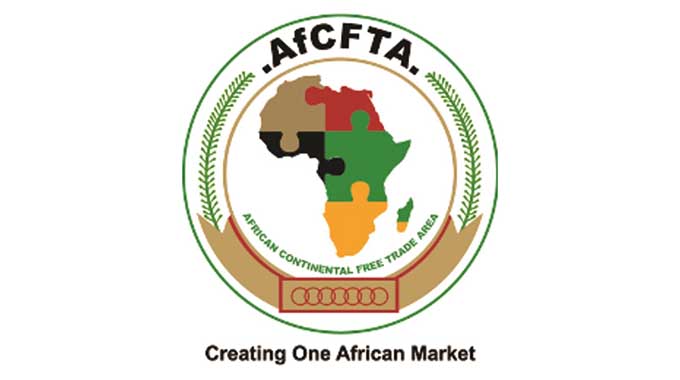Trade logistics and competitiveness

Sitshengisiwe Ndlovu
Countries’ competitiveness in the area of trade will determine the benefits to be reaped from the AfCFTA that operationalised on the 1 st of January 2021.
Trade liberalisation of tariffs , borders, and movement of people will in the short term disrupt markets however welfare gains will be more in the long term albeit not automatically but through efforts that will address indicators that promote seamless and transparent trade.
Nevertheless the Covid-19 pandemic through successive bouts of the different variants continue to challenge attempts reconstitute trade logistics and transport as significant drivers of trade facilitation.
Trade liberalisation comes with competition which may force some businesses to go under particularly the MSMEs including Women Owned Businesses that are vulnerable due to several factors that affect these businesses.
It is important for countries to analyse the trade value chains especially the transport and logistic value chains as these tend to have a severe ripple effect on the economy as a whole when not handled properly.
Increased awareness and understanding of the role play by logistics and transport in trade is required more so as the economies seek to benefit from the plethora of trade agreements that are in the region.
United Nations Economic Commission for Africa(ECA) and Africa Union Commission recently published the Continental Guideline on trade and transport facilitation for the movement of persons, goods and services across Africa during the Covid-19 pandemic.
This is all in an effort to address the bottlenecks and ensuant rising costs that have become a hallmark of trade globally.
The guidelines present a comprehensive road map reflective of the current issues that impede trade while providing solutions to achieve harmonised and coordinated movement of goods across the borders.
Players in the logistics chain, end users including consumers, governments, various producers, and foreign suppliers would be better served when globally Customs Administrations, Freight Forwarders, Shippers, Customs Brokers all took advantage of the Continental Guidelines to enable trade facilitation.
The logistic international score card devised by the World Bank, is a means through benchmark tools, to assist countries to measure and assess the effectiveness of logistic as part of the trade supply chain.
Six identified dimensions are used in the international score card to assess the country’s performance.
Surveys and consultations are conducted at country level through logistic companies and customs brokers to measure the country’s performance on the identified dimensions.
Performance on the dimensions is rated between 1 and 5 where I denotes low performance while 5 denotes high performance. These findings make the Logistic Performance Index Report(LPI).
Countries are measured on these six dimensions; customs, infrastructure international shipments, logistic competence tracking and tracing shipments, and timeliness.
High performance on these dimensions usually corresponds with reduced trade costs, depicting smooth movement of goods and services across borders.
The last LPI Report was done in 2018 and Zimbabwe ranked 152 among 160 countries that were surveyed, pointing to the urgent need of trade facilitation reform around all the six dimensions.
Zimbabwe being a landlocked country means that policy makers and various stakeholders have to critically evaluate the logistic competitiveness in doing cross border trade in the Covid-19 pandemic and in the AfCFTA dispensation.
The global container shortage continues to escalate trade costs and Africa has not been spared in rising freight costs.
The Southern Africa Freight News recent publication laments the delays of movement of cargo across borders, where the turnaround time of containers has doubled, negatively affecting the transport costs and the volumes moved.
These developments tend to have a ripple effect across the economy due to the intersectionality of the logistic industry. Domestic Logistic Performance Index is also conducted to assess the movement of goods and services at domestic level.
This index focuses in detail institutions, core logistics services , border procedures in relation to time within the country.
At domestic level, the collation of the findings do not lead to country rankings. In the advent of the AfCFTA with inherent trade liberalisation challenges, it will be prudent to focus on the logistic industry as part of the starting points to embark on trade facilitation reform that will deliver on simplified and harmonised trade that will make Zimbabwe competitive and benefit from the AfCFTA.
Globally the logistic industry responsible for moving goods and services across borders has grown significantly currently at US$4,3 trillion.
Focus on this industry in terms of capacity building, regulation and re-tooling cannot be over emphasised. It also important to add that the reform should also be carried out through a gender lens to ensure that no one is left behind.
Sitshengisiwe Ndlovu President of OWITZIMBABWE: MBA/UNCTAD: Trade and Gender Linkages/ IAC Dip/Cert: Trade in Services and SDGs: Robert Schuman Centre of Advanced Studies/IDEPCert: Making the African
Continental Free Trade Agreement Work. She writes in her personal capacity.
For more on trade matters visit her Blog on website: www.owitzimbabwe.org.









Comments